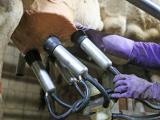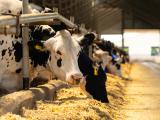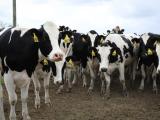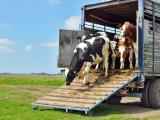May 26, 2006 (CIDRAP News) – Member states of the World Health Organization (WHO) agreed today to invoke a set of health regulations related to influenza a year early because of the threat that H5N1 avian flu will trigger a flu pandemic.
The voluntary regulations are part of the International Health Regulations (IHR), which were approved by the World Health Assembly a year ago but are not scheduled to take effect until June 2007.
"The provisions identified for early voluntary compliance include those relating to rapid and transparent notification, support to countries that request it in investigating and controlling [influenza] outbreaks, and providing essential information including recommendations for control measures," the WHO said in a news release today.
The resolution passed by the WHA notes that rapid detection and reporting of human cases of avian flu "underpin WHO's ability to issue a reliable risk assessment and declare an appropriate phase of pandemic alert."
Among other things, the voluntary measures adopted under the resolution call on countries to:
- Promptly report to the WHO any probable or confirmed human illnesses caused by any new flu virus subtype
- Designate an official IHR "focal point" to communicate information and collaborate with the WHO on risk assessment (the language doesn't specify whether this would be an individual or an agency)
- Designate IHR "contact points"
- Provide WHO collaborating centers with information and biological materials related to highly pathogenic avian influenza and other novel flu strains in a timely manner
The resolution also covers regulations related to surveillance, information-sharing, consultation, verification, public health response, and public health measures for travelers.
The measure calls on the WHO director-general to "further accelerate steps" to set up a roster of experts [on avian and pandemic flu] and to invite proposals for its membership."
In addition, the WHO chief is asked to help mobilize international help for needy countries affected by avian flu and to search for solutions to the shortage of, and unequal access to, flu vaccines.
Anders Nordstrom, acting WHO director-general, said the agency has increased its ability to provide on-the-ground help to avian-flu–affected countries in the past year, according to an Agence France-Presse (AFP) report published today.
"The number of missions from WHO has gone up since the last year," said Nordstrom. "And now we expect with this decision, which is more of a political commitment, that we will be able to accelerate even more."
Nordstrom, who was appointed after the death of Dr. Lee Jong-wook on May 22, said the WHO and affected countries need more people and money to cope with avian flu, according to AFP.
At a conference in Beijing last January, donor countries pledged $1.9 billion to help poor countries prepare for a pandemic. Nordstrom could not provide details on how much of the promised money has been given so far. But he said that only $12 million of $89 million promised to the WHO has come in, according to AFP.
See also:
WHO resolution on flu provisions in the IHR
https://apps.who.int/gb/ebwha/pdf_files/WHA59/A59_47-en.pdf



















